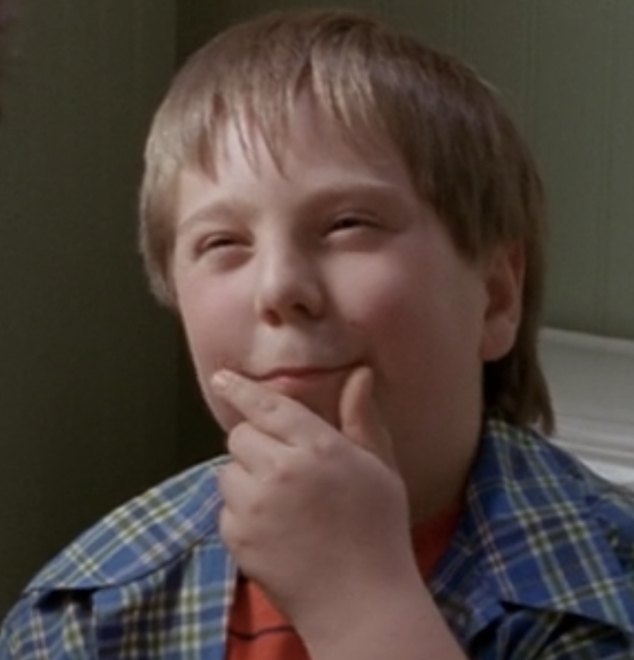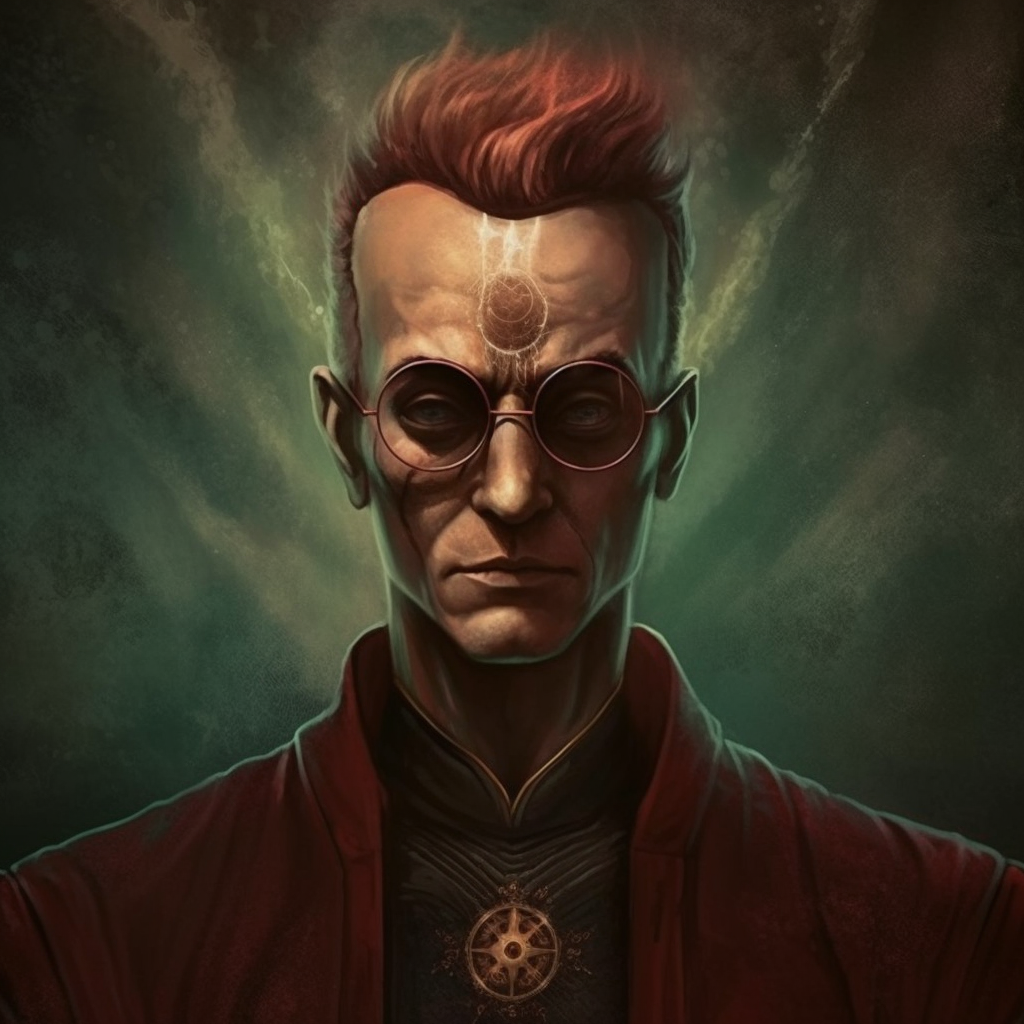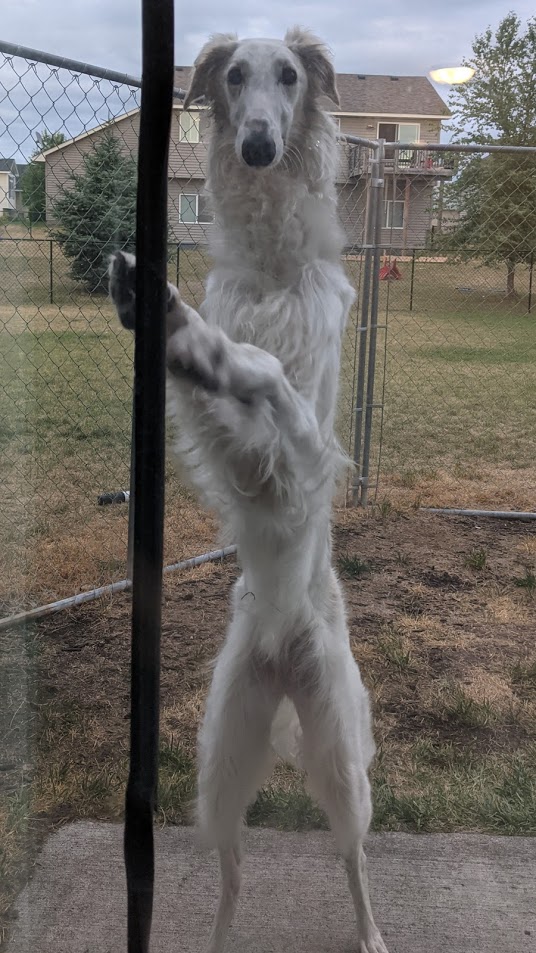Art by smbc-comics
Consciousness is often said to disappear in deep, dreamless sleep. We argue that this assumption is oversimplified. Unless dreamless sleep is defined as unconscious from the outset there are good empirical and theoretical reasons for saying that a range of different types of sleep experience, some of which are distinct from dreaming, can occur in all stages of sleep.
Pubmed Articles
Does Consciousness Disappear in Dreamless Sleep?
Sciencealert Article We Were Wrong About Consciousness Disappearing in Dreamless Sleep, Say Scientists
Sleep is NOTHING like death. You’re still experiencing lots of stuff, you still very much have a sense of self, you’re still thinking things, your brain is still processing lots of information.
General anesthesia - now THAT is a real close period to what being dead is.
You sound a lot like a guy who isn’t dead. Not sure if I should trust your opinion.
I’ve had general anesthesia, it was just like falling into a deep, dreamless sleep.
If death is like that, then there’s absolutely nothing to be afraid of.
Probably is. If they gave you a little too much anesthesia so you didn’t wake up, you would probably drift off the same, and then just not wake up.
It’s not sleeping I’m worried about, it’s not waking up.
I’ve also been dead for 13.8 billion years before I was born, and I didn’t mind it then.
I do mind now. I’m quite bummed out about missing all the fun of the 20th century. And never getting to breathe truly clean air. Or having the athlete body of a gatherer. Messing around in trees with feet that can actually grip something.
Except the agonizing pain which precedes death
Depends on the death.
Saying “you too” to the waiter after he says “enjoy your meal sir”
If it’s death from too much anaesthesia (or, apparently, freezing), there is none.
Is there a way to actually know that?
Is there a way to actually know anything?
I’m sure you could measure brain activity during death to know for sure (but idk under what conditions you’d be able to do that though). It doesn’t really make any sense to me that dying, unless due to some painful external cause, would be painful though. Especially under anesthesia or similar.
For me when I had anesthesia I quickly closed my eyes with the surgeon talking, when I opened my eyes the surgeon was still talking so I was wondering when the surgery would start.
Of course when I opened my eyes it was 5 hours later and after the surgery but it took me a while to realized that.
It’s pretty cool that you could just continue your thought after basically pausing your brain for five hours. Kind of like hibernation for a pc I guess.
I’ve had general anesthesia, it was just like falling into a deep, dreamless sleep.
What if anesthesia actually just blocks your memories and physical reactions, but you actually experience everything that happens to you in absolute terror?
What if anesthesia actually just blocks your memories and physical reactions, but you actually experience everything that happens to you in absolute terror?
Latest studies with FMRIs and other tools have found that general anesthesia decouples the sections of the brain from each other. All the various parts of the brain stop communicating. It’s an entities different state than sleep based on the brain activity.
Normally when we have various stimuli or are asleep, neural activity “flows” around from one section to the other. When under general anesthesia those flows are isolated and don’t connect to other sections of the brain.
This has actually given us a huge clue as to where consciousness comes from and what makes it a thing.
It also helps explain why going under is just lights out and no drama or anything. It’s like an off switch for the “person”.
Thats exactly what some do, depends on the anesthetic, but it doesn’t matter because if a memory never forms it may as well not have happened.
if a memory never forms it may as well not have happened
That is an interesting philosophical question.
If suffering is not remembered, was there even suffering? And if there was, does it matter? I can think of a few counterexamples of that, for example: a killer who tortures his victim before killing them.
Uhh, yes and yes? What’s stopping a rapist from anesthesizing their victims before the act and using the fact that they did as an excuse to get off charges under your logic?
Presumably in your scenario the victim remembers the torture though.
In the case of general anaesthetic the memory is effectively considered to be deleted in real time. On its way through the brain it ceases to exist so it never reaches the conscious mind.
I’m genuinely surprised that the idea that something bad might happen to you when you’re dead or that it could be painful etc is anywhere near as prevalent as it is. To me, that makes absolutely no sense. Of course dying might be painful… But death? Once you brain no longer works? Feels obvious to me that you won’t feel, well, anything. The thing that frightens me about death wouldn’t be the experience of being dead, but rather not being able to do any more things and not existing anymore.
This reasoning goes all the way back to Epicurus. With regard to your latter points, Epicurus thought they were also solved by being dead. For someone to miss out on something, they have to exist in the first place. No person, no missing out. And for not existing to be bad, a person must be around to be upset about it.
What’s hard for me to accept is the idea of never waking up. It seems like it has to end sometime.
See for me I’m not sure why that’s hard to accept. I think I first heard it from Alan Watts, that there were billions of years of space before I was conscious, so why am I afraid of billions of years of nothing after I’m gone?
Not having something in the first place and losing something you have are two different things. It’s like saying to someone who just lost their partner “don’t feel bad, for the first n years of your life you didn’t have a partner and you were fine”
Additionally, it’s not billions of years of nothing. It’s an eternity of nothing. Billions of years may as well be the blink of an eye relative to eternity.
God, I’m getting anxious just talking about it.
But isn’t there a fear anyway? Because its forever. Also not seeing loved ones ever again. Not enjoying the nice things ever again.
Add constant pain, and that’s what I call life.
Well except Ketamine and some other substances that are used in anesthesia.
That’s not general anesthesia, that’s like twilight anesthesia or some other term like that.
Conscious sedation is the term of art. Fentanyl and versed are commonly used for this tour of sedation.
When I’m asleep I’m not experiencing shit. Close eyes, moment of black, awake again the next day.
Coma?
There’s still brain activity in sleep.
Brain activity isnt nessecarily consciousness.
Right? I’ve met so many of those people.
But it is life.
It’s not death…
Do you really have dreamless sleep or do you simply not remember the dream?
For a long time, mine was dreamless. It wasn’t until I turned off the TV before going to bed that I started to have dreams. I theorize that the external stimuli hindered my brain from creating dreams.
It was a super weird period because my dreams started as nightmares, like my brain didn’t know what the hell was going on. Then I drifted through a period of recurring dreams and then lucid dreams. They’ve settled down into more normal dreams, but I’m still super excited to dream each and every night. It feels like I found music after being deaf or seeing colors for the first time after being blind.
It wasn’t dreamless, you just weren’t remembering your dreams. If your sleep was truly dreamless for a lengthy period of time you’d be dead.
Often simply changing your sleeping habits in any significant way is enough to get you to start remembering dreams. That’s because you need to wake up “unexpectedly” in the middle of a REM sleep phase to have a chance to form memories of them. Normally your brain has its memory-forming mechanism disengaged during REM sleep because there’s no good reason to remember that stuff - it’s just a side effect of a mental housekeeping routine.
You can also “train” yourself to remember dreams more often, to some degree, by trying to record a dream journal or otherwise forcing your brain to lay down some memories of those dreams the moment you wake up and they’re still present in your short-term memory.
You’re not supposed to remember your dreams. When you remember your dreams it’s when you were woken unexpectedly, or when you consciously or unconsciously fled the dream before returning it to the Dreammaster.
We only borrow our dreams from him every night, but when we leave a dream prematurely we are stealing that dream - bringing it into our reality and hiding it away in our memories.
However precious or horrid your stolen dreams may be, remember that the Dreammaster will claim them back from you. He always does, in the end.
Thank you. The only scientific answer in this thread.
I for one welcome my sleep overlord.
Well usually you wake up after each dream circle. You just don’t remember it because you fall asleep almost instantly. That really was a problem when my father would wake me up in the morning and I couldn’t remember him waking me up and slept for another half an hour)
Then I started with a dream journal. I don’t do it anymore because I’m lazy, but I still remember waking up multiple times a night and remembering exactly what I just dreamed and notice the memory fading away.
When I journaled my dreams were extremely vivid. It isn’t like this anymore but I still sometimes have lucid dreams even though I can’t really stabilize and control them.
Weird
The majority of sleep is dreamless, I believe it’s just during REM that you dream, which I believe is usually 15-20% of normal sleep.
Technically, if you remember a dream it’s because you woke up during a REM cycle. If your sleep cycle completes fully, then you won’t remember your dream and will feel more rested.
I think this is false but I don’t have information to refute it other than my own experience. I used to write a dream diary. When I did, I remembered my dreams almost every time I woke up. Not just half the time or 80% but more like 96% of the time. And it was very detailed with multiple dreams tied to each other.
I kept a dream journal for a couple of years.
Subjectively there was no way for me to know if it was memory or just my tired brain making a story out of the left over bits of sleep.
It did fuel a lot of creative writing though (both in and out of the journal). And helped me be more in touch with my emotions.
I remember I’ve had dreams but I only have a very vague sense of what they are about.
Also kept a dream journal.
The trick is not to focus on the story (what the dream is about or means) and to recall the emotional energy in the dream.
Learning to meditate and tune into my emotions was both aided by dream journaling, and an aid to dream journaling.
Plus the emotional content probably has more meaning than whatever story we tell ourselves.
Agreed. In my experience, dreams can be interpreted much like art can be interpreted. How you emotionally respond to the images and scenarios tells you a lot about what your mind is attempting to deal with while you are physically safe. I believe that dreams are a form of poetry that your mind is engaged with in order to integrate life experiences in a safe manner.
Wonder how the robot feels about rebooting.
He might not feel much if the save state doesn’t get reloaded on startup!
It’s pretty terrifying when you think about it, yet completely normalized.
My pet peeve regarding all these discussions is that we throw around “consciousness”, but we have no good definition for it …
I mean to be honest I wouldn’t say that we “die” at all when you sleep… your mind is extremely active while sleeping, it’s just disconnected from motor control.
it’s just disconnected from motor control.
It’s way more than just that, though. You’re also disconnected from your sensory inputs, and furthermore, your conscious experience is interrupted. It’s not like you’re just in a sensory deprivation tank, because there you’d still experience conscious thought, and the passage of time. It just seems to turn off for a while.
Plus there are periods of deep sleep when your brain does shut down quite thoroughly. People just don’t remember those, obviously, so they put a lot more weight on the dreaming bits that slip through sometimes.
I mean, without defining what the self is and consciousness, it’s difficult to even define what death is from a consciousness point of view. A living meat bag doesn’t require brain activity either. There’s a whole range of things. So even assuming we have a good meaning of “death” is oversimplifying things.
Not even that sometimes. I’m told I can do some pretty mean kicks while I sleep.
It’s terrifying at first, but if you reflect over it further it becomes natural. Sure, we can’t guarantee that we are the same continuous individual, but “not sleeping” would only see us have a more profound and permanent discontinuity. It’s not a possibility for us. Still, we do carry something of the people we used to be regardless. Consciousness vanishes and recreates itself, as do most of our cells. We are evolving entities, as is everyone around us.
This existential fear is rooted on a desire for permanence that we never had to begin with. There was never a fixed self that we could possibly know.
What sort of definition of consciousness are you looking for? I’m sure there are dozens of “good” definitions of consciousness.
A human being is a process of computation. Ending the computation is death. Pausing the computation is, well, simply pausing the computation. It has no profound significance.
(This is also my answer to the “teleporter problem.” As long as the computation continues, a change in the substrate on which it takes place also has no profound significance.)
And if the teleportation process doesn’t terminate the original, but creates a copy on the other end, are they both the same person?
Creating and destroying perfectly identical copies of the information that corresponds to a person neither creates nor destroys people unless the very last copy of that information is destroyed, in which case the person is killed.
Small divergences aren’t a big deal. For example, if a person spends an hour under the effect of an anesthetic (or alcohol) which prevents the formation of new long-term memories, this person isn’t dying when he goes to sleep and wakes up without any memories of that last hour.
Larger divergences are a big deal - losing a year of memories is pretty bad, losing a decade is even worse, and having one’s mind returned to the blank slate of an infant is very close to the same thing as dying.
So what I’m saying is that the two copies start out as the same person and then gradually become different people.
You’ve been watching Farscape.
I doubled her… twinned her!
Definitely a fucky-brain episode.
I would argue that two disconnected copies of the information that corresponds to a person does make 2 disjoint persons.
Like running a different seed on procedural generation, entropy will ensure that these two identical persons won’t be identical after whatever ticks in the biological clock.
I agree that the copies will diverge almost instantly; I’m just saying that small amounts of divergence aren’t a big deal. That’s what I’m trying to illustrate with my example of the person who loses an hour of memories. I think this is exactly equivalent to making a copy, having that copy exist for an hour, and then destroying it. An hour of memories does make the copy different from the original, but the loss of the copy is just the loss of that hour, not of a complete human being (and we naturally quickly forget much more than that - I already can’t remember what I did every hour yesterday).
I admit I don’t feel like it’s exactly equivalent, but I think that’s an illusion caused by my moral intuitions developing in a wold where destroying a copy always means destroying the only copy.
Though the simpler solution is that perhaps memory formation is paused over the period then the person ‘lost’ their memory to sleep.
Losing memories when you’re wide awake is like a file system deleting pointers to a file. The file is still there, just inaccessible.
Anyways I feel that the assertion that “Creating and destroying perfectly identical copies of the information that corresponds to a person neither creates nor destroys people” is extremely dangerous thinking that could lead to the premature end of consciousness for some very unfortunate individuals. After all, they’re perfectly identical and we have no documented instance of anyone sharing consciousness, so it may be that consciousness are unique and not commutative.
a change in the substrate on which it takes place also has no profound significance.
It does to the person being “deleted”.
Have you played SOMA? Fun game, gets into this exact type of thing
SOMA is one of my favorite gaming experiences and probably one of the best sci-fi stories in this medium.
Saddly some monster bits were a bit weaker and I think Amnesia fans felt it didn’t match their expectations…
It feels like dreaming is the “training from a batch of sample memories” tactic from deep learning.
Your brain is still very much active. It’s more like running a computer with the display turned off.
what a suspicious comic
To die
To sleep
To sleep, perchance to dream…
Aye, there’s the rub.
Here is an alternative Piped link(s): https://piped.video/-mu780uB7mI?si=mKSO3SiGfkqIXnWq
Piped is a privacy-respecting open-source alternative frontend to YouTube.
I’m open-source, check me out at GitHub.
Good to know. Sometimes i use Invidious but the more alternative, the better.
Nice one👍 I love the channel.
And blocked


















